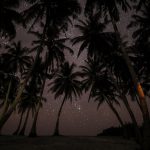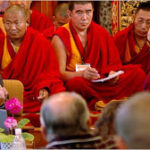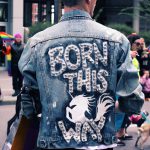(Updated June 2015)
 The most significant event in LGBT history in Mozambique was the decriminalization of homosexuality in June of 2015, a very unusual act in homophobic Africa. The landmark legislation was scheduled to go into effect June 29 and would make the southeast African nation the 21st country in Africa to legalize same-sex relationships. That leaves 33 countries with anti-gay laws.
The most significant event in LGBT history in Mozambique was the decriminalization of homosexuality in June of 2015, a very unusual act in homophobic Africa. The landmark legislation was scheduled to go into effect June 29 and would make the southeast African nation the 21st country in Africa to legalize same-sex relationships. That leaves 33 countries with anti-gay laws.
It is an odd irony of history that Mozambique was ruled for centuries by harsh and repressive Portuguese regimes during which slavery thrived and brutality was wrought upon the native people—but homosexuality was handled lightly. Unlike many British and French colonies around Africa where the 19th century brought demeaning and deadly criminal laws against same-sex behavior, in Mozambique the ruling class did not act with the same abhorrence.
The specific reasons are embedded in complex psycho-religio-political history but the bottom line is that homosexuality was not as highly stigmatized, condemned or made sinful by the Catholic Portuguese here as other Euro-imperialist colonies elsewhere in Africa. In 1886 the Portuguese codified the laws in Mozambique and there was no mention of same-sex behavior.
“Mostly they just ignored it,” said Danilo da Silva, director of modern Mozambique’s only LGBT organization, LAMBDA. “It apparently was not so important to them that they were scared of it to make it such an evil way.” Instead of naming homosexual acts as illegal (‘carnal behavior against the laws of nature’ claimed the British), the laws here described ‘vices’ against nature, which was interpreted as referring to bestiality rather than human sodomy. But the law has almost never been applied, according to Danilo. Mostly people just kept quiet about it, there was—and is—a ‘safety zone of silence’.
The resulting effect for modern-day gays in Mozambique is that homosexuality is still handled somewhat ‘lightly’—certainly not openly accepted but also not cruelly or vengefully persecuted as currently done in Nigeria, Rwanda, Tanzania, Congo and across most of this continent of 54 countries where gay people face harassment, jail and violence.
Also, said Danilo, present day religious organizations—Muslim and Christian–are not as fundamentalist here as in other countries. “Sharia law is not accepted here plus the Anglicans are most moderate here—unlike central Africa where they are just bonkers against homosexuality,” explained Carmen, a pretty lesbian member of LAMBDA who joined us for dinner one evening at the Jacaranda restaurant in central Maputo.
(Photo: downtown Maputo)
“Bishop Akinola (Anglican bishop of Uganda) has made himself famous and notorious over his rabid anti-gay statements that have tapped into the ignorance people have about homosexuality. He has played to people’s fears instead of to their love. It’s all about his ego and power,” she continued.
(The counter-balance to Akinola’s mean spirit is the much beloved Archbishop Desmond Tutu, Nobel Peace Prize winner and former head of the Anglican Church in South Africa. He has consistently urged church leaders to stop obsessing against gays and pay more attention to poverty, AIDS, children’s health in Africa. Tutu has apologized in public many times over for his church’s homophobic discrimination.)
A Huge Country
This is a very large north-south country that extends over 1200 miles from Tanzania to Swaziland. The northern territories have more Muslim populations with the southern areas more Christian. There is some friction between the two areas but not because of religion, more because of the political favoring of the south where the capital Maputo is located. (Until the 1890’s the capital city was located in the north on a small offshore island call Ilha Mocambique, now a worn but charming UNESCO heritage site where colonial style, crumbling former government buildings stand in need of repair.)
As well, said Danilo, Mozambique suffered through a murderous civil war for nearly 16 years after independence from Portugal in 1976. It was fought between political rivals that killed many people on both sides. “Today the population are tired of war and killing. People want to live in peace, and now we do. We may be poor but at least no one is being shot for politics. People prefer to mind their own business and we’d rather talk than fight, so there is an modest acceptance of differences.”
LAMBDA, Danilo and Carmen
Perhaps because of the relative ‘lightness’ of being gay and due to the general absence of vigorous persecution of gays, no significant LGBT organization was formed until 2006 (although there is certainly gay stigma from the current homophobic government).
That year LAMBDA Mozambique came into being with Danilo heading the effort. Describing this effort, Danilo and Carmen talked with me in balmy weather during a break in the usual rainy season (December to February). (Photo right: Danilo and Carmen)
We could have been sitting anywhere in Europe or North America. There were no watchful eyes upon us, no prying ears, no authority to fear, no sense of risk as we talked. (During several days in Maputo I hardly saw a policeman on the street.)
Danilo is a handsome 30-something computer programmer who is now wholly engaged in leading LAMBDA. He has been out and proud for five years speaking and educating on behalf of gay rights and HIV health care. It was during a television appearance that Carmen saw Danilo and was surprised that anyone would be so brave. “I said to myself, that is someone I want to meet.” She was in the process of coming out and had been inspired at a women’s conference in 2008 in Mozambique, which included seminars on human rights for sexual minorities, so she was ready to hear LAMBDA’s message.
LAMBDA’s vision is stated on their website: to work toward a society where sexual orientation and diversity are recognized by the state, respected by citizens and protected by law. LAMBDA promotes civic, human and legal rights of the LGBTI community through public awareness and education as well as advocacy and social dialogue. We are motivated by the belief that sexual orientation is integral and that everyone has the right to exercise their sexuality without fear of being stigmatized.”
The organization has been partially funded by the Dutch charity Hivos, one of the most generous and pro-gay organizations in the world. Their mission with LAMBDA is: “to focus on lobbying for the repeal of homophobic legislation whilst the public awareness campaign will raise the profile on the rights of the LGBTI community in Mozambique. The objective is to enhance the numbers of LGBTI people coming out of the closet and celebrating their sexuality. Hivos will also try to create an enabling legal framework so that the sexual minorities are not criminalized when they exercise their rights. Hivos supports the internet union as there is little support to sexual minorities and they are at risk as Mozambique is highly homophobic.”
LAMBDA has members across the county some of whom lobby supportive legislators hoping to become an officially registered NGO with the government, currently headed by the ruling Frelimo party (for the past 20 years) with a less than receptive current president.
As usual there are parliament members who are hardliners and other who are moderate. LAMBDA has tried for over a year to get registered. Technically, said Danilo, there are no constraints since the constitution declares that “all are equal” but of course “there are moralists who resist the equality so we wait patiently.” (Photo left: government building in Maputo)
These fundamentalists take the usual stand against homosexuality. “Mostly it is due to ignorance of the masses about human sexuality. The vast majority have no intelligent education about sexual issues.” Danilo noted there is an upcoming election later in 2009 so Frelimo is using that as an excuse to delay gay requests lest they be accused of being pro-gay. “Although we have apparent freedom, we are not a true democracy since we are essentially a one-party government. The opposition—Renamo—is disorganized and ineffective.
“We can’t officially offer services to the public, including to LGBT citizens, unless we are registered. So we offer support as individuals.” With the help of Hivos, LAMBDA is able to offer informal education seminars about HIV issues, gay sensitivity, condom and lube use and other health issues. Despite its non-legal status LAMBDA does work with local authorities to lobby for HIV awareness. Unfortunately it’s still a long way off that MSM will be specifically targeted as a high-risk group by the health ministry.
LAMBDA produces a newsletter called ‘The Colors of Love’.
Danilo also travels to rural areas and gives trainings in human rights, sexuality and peer education. LAMBDA currently counts about 50 activists in its membership. A major project being initiated in March 2009 is a sex survey of men in Maputo to determine sexual patterns of behavior, with the intention of bringing the MSM population to the authorities’ attention. It is estimated that 17% of men in Mozambique are HIV+ with most not knowing it. “Many men here are on the down-low,” said Danilo. (During the conversation, I asked, where he learned such good English? “In bed!” laughed Danilo.)
The Brazil-led 2007 UN effort urging member nations to decriminalized homosexuality was signed by many nations, mostly European but not signed by Mozambique who abstained. (Also not signed at first by the USA but under Obama it will signed.)
Painful History
Not surprising for southern Africa (RSA excepted) in a conservative Christian/Muslim country, with a vastly rural population with minimal education, LAMBDA is the only LGBT organization to be found here. It is a poor country with little history of respect for human rights. The Portuguese were harsh rulers and slavery flourished, as mentioned above, along the Indian Ocean coast for three centuries as hundreds of thousands of black people were treated like cattle to be bought and sold.
Following independence in 1975 and a ruinous experiment with socialism, civil warfare broke out in the late 70’s between rival political parties each with its own army for killing civilians who opposed them. The chaos and violence went on for 16 years before a fragile election (1994) could be mounted that gave authority to one party (Frelimo), which is currently still in power. The country has experienced relative stability since 2000 and life and prosperity have improved.
Human rights have not been a priority in the rebuilding of the country; survival for most is subsistence farming on small plots of land—corn grows everywhere. Commerce is slowly emerging as investors and non-governmental organizations (NGO’s) have returned. It is estimated that more than 40% of the gross national income is derived from foreign governments and charity organizations that support public works, sponsor schools, churches and agricultural projects.
Daily Gay Life
Meanwhile at the personal daily level, both Carmen and Danilo go about their lives with relative freedom to choose their lifestyles. Both enjoy primary relationships with their partners. Danilo’s partner has a seven year-old child who, Danilo chuckled, now has three dads since the mother has remarried. The child lives with the gay double-dads.
 There are numerous long-term gay and lesbian couples in Maputo among Carmen’s and Danilo circles of friends. There are no reports of overt discrimination or homophobia—“just the usual family pressures to marry and make babies.” Is there any reaction from neighbors? “No, they mind their own business and our interactions are easy.” (Photo left: trendy cafe in Maputo)
There are numerous long-term gay and lesbian couples in Maputo among Carmen’s and Danilo circles of friends. There are no reports of overt discrimination or homophobia—“just the usual family pressures to marry and make babies.” Is there any reaction from neighbors? “No, they mind their own business and our interactions are easy.” (Photo left: trendy cafe in Maputo)
Carmen described gay life in Maputo: “LGBT people have an open social life when in a LGBT event. But people are afraid of being stigmatized or discriminated when around non-LGBTI. Maputo society mostly does not mind whether you are LGBTI as long as you don’t kiss your partner in the street or if the LGBTI is not part of their family. Most cases of LGBT people live in closets because of their family’s (parents/brothers/sisters) reaction to the news. The pressure drops on their backs to get married which is strong. There is the possibility to get kicked out of the house with nowhere to go.”
Danilo added, “in such an ‘elementary’ modern social fabric (mostly in Maputo) there are no gay-only bars or clubs, no publications, no big social events other than friendship networks. There is the occasional general reference to homosexuality in health/HIV seminars presented by LAMBDA to government organizations, health care workers and schools.”
Are there cruising places in Maputo? Danilo and Carmen together reported some favorite places in the area for socializing or cruising. I expected to hear two or three places but they named a list including Inhaca Island, Marracuene Lodge, Ponta D’ouro Beach, Namaacha Village, Pequenos Libombos Dam and Costa do Sol Beach. As well, they went on, there are some mixed nightclubs like Coconuts, Lounge, 4U, Mafalala Libre (offering gays night every Thursday) and also Sheik and Havana clubs. Not bad for a conservative homophobic culture!
Rural Life
How do rural villages react if someone is found to be gay? Carmen described that she knows a couple of people in rural areas: “their cases are similar to others in the urban area. The pressure comes from inside the house to marry. Today homosexuality in Mozambique is something that society thinks is new but if they go back in lot of family history they will find someone that was homosexual. People tend to close their eyes for what they believe is ‘abnormal. But whose standards decides the normal and abnormal when it comes to people’s sexual identity”
Mozambique is a vast country, considerably larger than Texas, with a vast rural outback of low forests and endless small plots of subsistence farming. A long train ride through the northern wilderness reveals countless tiny villages of mud-and-thatch houses and the occasional motorbike.
Along the rails, at every stop, hundreds of villagers run to greet the train hoping to sell varieties of goods—vegetables, fruit, woven bamboo, used clothing, shoes, fried and live chickens or drinks (Coca Cola is everywhere)–as children stare at the iron horse in their midst with its packed 3rd class cars and its one gritty 2nd class car. Many of the children are dressed in rags, the men in worn used donated clothes and the women in colorful prints. (Photo: farm children with hoes)
What might these people know of homosexuality? The life expectancy out here is about 38 years. The national per capita earning is about US$300. For sure, if one does have emotional or sexual feelings for a same-sex friend it will be poorly understood since there is usually no social reference that can help a person to learn about sexual variety.
Only heterosexual behavior is modeled for young people, although doubtless there is some sexual play among young unmarried boys with boys and girls with girls. If it happens it is seen only as silly play and nothing more. Anything else will be buried under layers of tradition, social standards and family expectations to conform. And with few skills other than farming or manual laboring, there is only a remote chance that a rural person will ever go far away.
That said, in these modern times, there are some young ‘entrepreneurs’ on a small scale such as truck or taxi drivers or souvenir dealers or some clever students who make it to urban centers, mostly Maputo. Most of the time their motives are commercial but for the few LGBT citizens who become aware of their sexuality via newspapers or magazines or Internet (rarely) or by gossip (mostly), there can be some authentic satisfaction found in the cities in Mozambique however secret.
If he (very unlikely she) is lucky enough to discover LAMBDA there is new hope, new friends and possibly a new love that may well open to them as the country moves into the future.
















